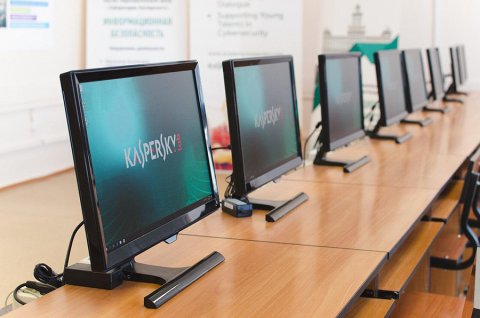Staff members of South Ural State University took part in a direct-dialogue discussion panel, UralROSPROMEKO—a conference on the topic of the "National Security and IT Technologies". The event was held on July 10th online, and therefore the conference participants were able to present the work of SUSU in the field of IT security without violating the COVID-19 restrictions in place in Russia.
The National Security and IT Technologies conference became a platform for discussing the environmental safety of territories of the Russian Federation and the application of the best practices in IT for this goal. Alongside representatives of the Ural Federal University, the National Centre for Ecological and Epidemiological Security, and the Russian Institute for Strategic Studies, lecturers from the SUSU School of Electronic Engineering and Computer Science and the Institute of Engineering and Technology presented their reports on the university's work in the field of information security and the use of artificial intelligence methods in the analysis of network traffic. The conference was held online, coordinated by the TASS press centre.
As the Head of the Information Security Research and Education Centre Andrey Barinov noted, in today’s world the issue of security in any field is closely related to IT. This is why information security is an actively developing field at SUSU. A distinctive feature of training at our university is the ability to work and study in the research and educational centre created jointly with Kaspersky Lab. Information Security REC offers unique training courses and disciplines, participation in conferences, and working with unique equipment that emulates real technological processes. This is how students learn to deal with new threats that will inevitably appear with the introduction and active use of modern IT technologies in all spheres of human life.
.jpg)
Photo: National Security and IT-technologies conference in the TASS press centre
“The use of information technology creates risks; from personal risks, such as theft of social media accounts and illegal access to health data from personal wearable devices (for example, fitness trackers), to global risks of industrial facilities, such as IT attacks on critical industries in metallurgy or chemical industries causing them to halt their work or perform emergency work," said Andrey Barinov.
Among the harmful effects on IT infrastructure objects, DDoS attacks lead to some of the most serious consequences. The targets of such attacks do not just include websites of big organizations, but industrial enterprises as well. Valentin Golodov, Senior Researcher of the Department of System Programming of the SEECS, SUSU Research and Innovation Services, noted that hijacking of digital IoT sensors, which are now used everywhere in production, is a security threat for the entire information system of an enterprise. However, it is inefficient to offer protection for known cases; it is necessary to predict the emergence of new types of attacks.
“National security in the modern world means, first of all, the protection of digital data. The modern world does not exist without digital data. There are different classes of information attacks, and first of all, solutions in the field of IT security are developed for them. However, it is necessary to identify new types of attacks within the existing classes. This is becomes possible with the use of machine learning methods, for example, the method of reinforcement learning. These methods, in which artificial intelligence is on our side, are already being introduced into industrial network equipment and into the software of servers responsible for security,” said Valentin Golodov.
These solutions are relevant for SUSU, since during the period of increased restrictions to combat the spread of the coronavirus infection, all work of the university is being conducted online. For example, a cooperation agreement was signed remotely between SUSU and UralROSPROMEKO. The work on ensuring the security of digital information related to the activities of the university has been in progress for more than ten years now, since the SUSU’s entry into the online space, including the university’s educational activities. Pavel Gamov, Head of the Department of Pyrometallurgical Processes of the SUSU Institute of Engineering and Technology, presented the experience of using online technologies in the educational environment and information on project-based learning to the participants and audience of the conference.




